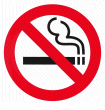



Women are smoking for different reasons than men.
Women Smoking
Women smoke for different reasons. Some smoke because of stress, some as a form of weight control while some will use it as an excuse to take a break. A younger woman might smoke because of peer pressure. Even though women are aware of the health threats of smoking, few know of the extra risks they may be taking. If a woman is smoking and using the birth control pill she would have an even higher risk of a stroke or heart attack. She could also have lower fertility. If pregnant there is a risk of having a premature baby, stillborn, miscarriage or a newborn baby that is below normal birth weight. If she breastfeeds she can pass chemicals from the tobacco via her breast milk to her baby. Women smoking also risk cervical cancer, osteoporosis and peptic ulcers. Women are more sensitive to the ill effects of smoking than men. If a woman gets lung cancer she gets it more lethal than men. She has a harder time quitting, suffering from nicotine withdrawal more than men. To make matters worse nicotine replacement therapy although still effective is not as effective on women as it is on men.
Your blood pressure drops back to normal. The temperature in your hands and feet returns to normal.
The carbon monoxide (a gas that can be toxic) in your blood drops to normal.
Your chance of having a heart attack goes down.
You can taste and smell things better.
You have better blood flow. Your lungs are working better.
Coughing, sinus congestion, fatigue, and shortness of breath decrease. Your lungs start to function better, lowering your risk of lung infections.
You reduce your risk for heart disease by half.
Your risk of lung cancer is nearly the same as someone who never smoked. Your risk of cancer of the mouth, throat, oesophagus, bladder, kidney, and pancreas also decrease.
Your risk of heart disease is now the same as someone who has never smoked.
About the Author Learn how to quit smoking once and for all. Free-Stop-Smoking-guide.com You may copy and post this article to your web site provided that the article is copied in its entirety. Including this resource box and live link back to our web site. |
 |
|
|

